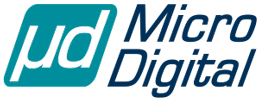Home > On-Demand Archives > Q&A Sessions >
Live Q&A - The Power of a Look-up Table
Nathan Jones - Watch Now - EOC 2024 - Duration: 24:07

A great talk on a subject not talked about enough - and thank you for your service, Nathan.
Good talk. I think you meant 0.5mm accuracy, not 0.5cm at 03:30 in? The library function performance depends on if you have a double or single precision MMU. One major advantage of tables is ensuring all cases/states are covered, easily missed in complex nested if else statements. I’ve used a variation of memoisation, where the tables are.stored in RAM and fully computed once during initialisation when there’s time to do so. I’ve found a good use for them in generic UART configuration and handlers. There are examples of table-based initialisation of tasks in Jacob’s book. I partcularly liked your button metadata and CLI parser.
Thank you very much Nathan, I am always looking forward to your talks in the conference. I really appreciate your thorough investigation and great delivery. Thanks for the book recommendation.
Thanks for that thorough presentation on lookup tables. I think you touched on every way I have used lookup tables over the years and more.. A classic use case is for really fast CRC generation. Thanks for providing the links. Good stuff.
Great talk, Nathan! I loved how you applied LUTs in different practical applications and also provided additional links for reading. Thank you so much. I sometimes forget how invaluable and expandable LUTs are.
Slides are now posted. Sorry about the delay, folks!
16:04:25 From Caio J. B. V. Guimaraes to Everyone: Thank you! 16:08:31 From BobF to Everyone: To your knowledge, have these techniques been applied to 'Fuzzy Logic' system design. Comment - Very good material in the slides, thank you. 16:13:23 From BobF to Everyone: Fuzzy - Based on logical threshold levels and boolean definitions ... I also need to refresh !! 16:13:57 From Caio J. B. V. Guimaraes to Everyone: Would compressing it somehow in a firmware be a good approach for "really constrained" devices? Comment: fuzzy is Machine Learning's older and weird cousin. 16:14:09 From Caio J. B. V. Guimaraes to Everyone: * Compressing look up tables 16:14:54 From Caio J. B. V. Guimaraes to Everyone: Perfect pronuntiation of my name, btw! 16:18:49 From BobF to Everyone: Hi, Caio, mixing the 'old' (Fuzzy) with the 'new' (ML) could be the way to go! 16:19:14 From Eric to Everyone: Yes, nice & easy to read! 16:19:19 From Caio J. B. V. Guimaraes to Everyone: It is!! All techniques have their places! 16:24:45 From Caio J. B. V. Guimaraes to Everyone: Thank you for all the insights! 16:24:54 From Eric to Everyone: Reminds me "lex" which generates (huge) tables out from to BNF to parse text. 16:25:43 From BobF to Everyone: Thanks Nathan ... lots of ideas !! 16:25:45 From Lyden Smith to Everyone: Thanks Nathan! 16:25:46 From Raul Pando to Everyone: Thanks Nathan for an awesome talk 16:25:57 From Eric to Everyone: Thank you Nathan!












An excellent presentation on an often overlooked aspect of embedded systems design.